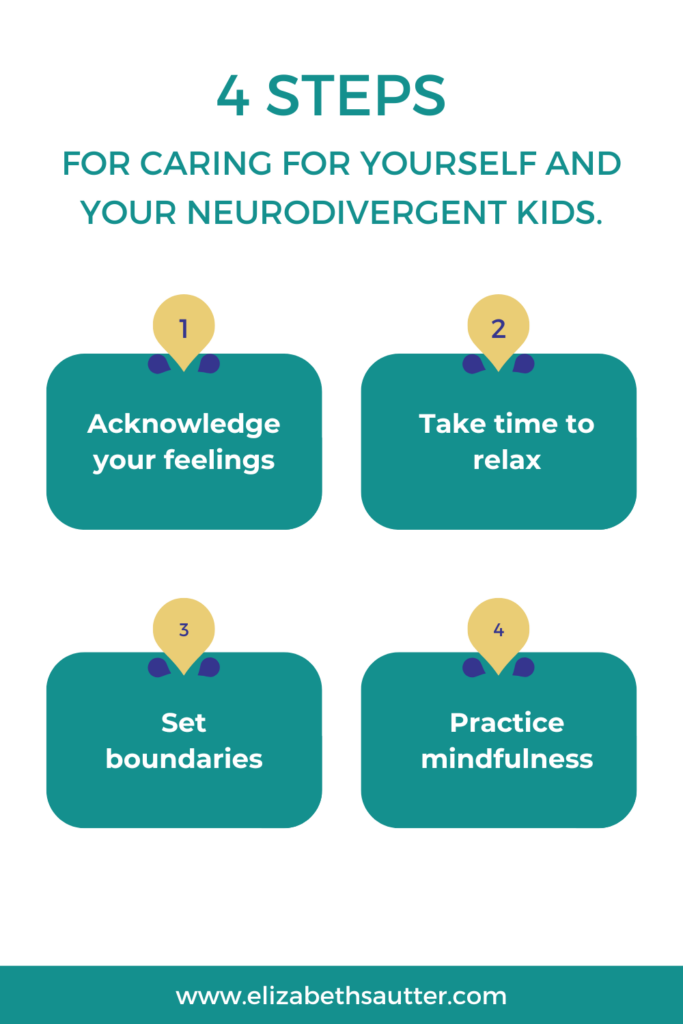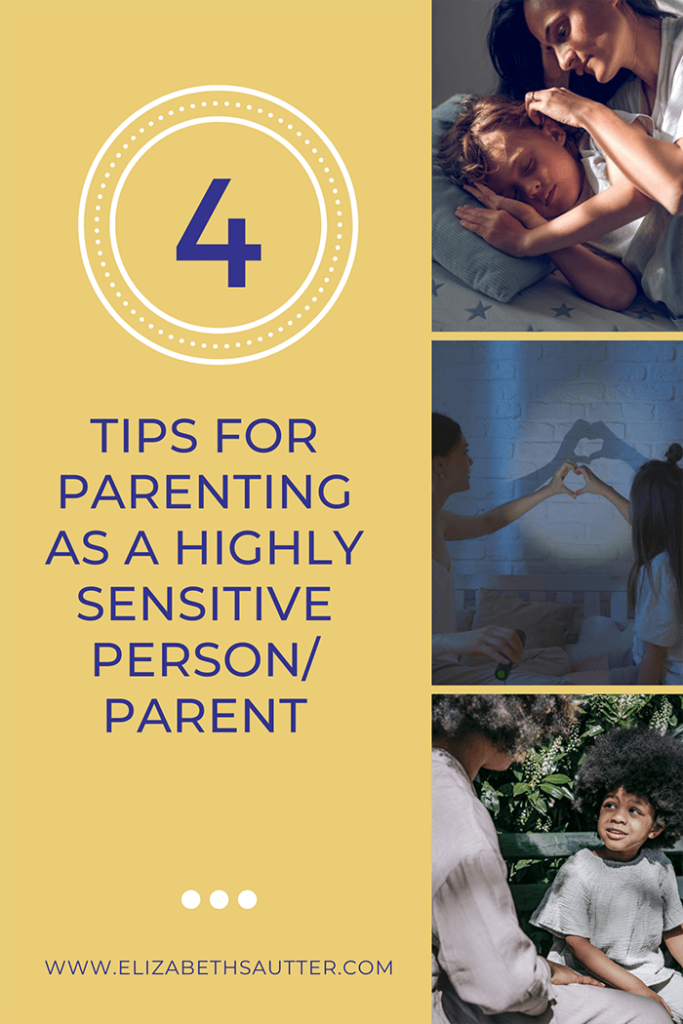Highly sensitive people are like diamonds – unique in so many ways. They are true gifts because they sense emotions and process information very deeply. This can make it easy to create a strong bond, attachment, and attunement as a parent.
However, being a highly sensitive person can make parenting challenging. Kids are loud, messy, and can have big emotions that can affect others, especially if you are highly sensitive to stimulation and the feelings of others.
But what does it mean to be a highly sensitive person/parent (HSP)?
I am not talking about being sensitive as when your feelings get hurt when someone criticizes you. This term was created to describe a group of people whose nervous system takes in information around them (sensations, emotions, environmental input, thoughts, etc.) more intensely than others.
A highly sensitive person (like myself) often has a sensitive system (body) and can get overstimulated by input such as:
- you jump when the telephone rings;
- you have a hard time focusing when many things happen at once;
- you can be easily affected by emotions, caffeine, or pain;
- the sound of your kids fighting is overwhelming;
- the touch of some textures might make you cringe.
If this is you, you might be what the psychologist Dr. Elaine Aron calls a highly sensitive person (or HSP for short). She also has a test that can help you determine if you are an HSP.
However, it’s essential to understand that being a highly sensitive person is NOT a disease or disorder of any kind; it’s an inborn set of strengths and capabilities; it’s just a unique way our brain operates.
How does this translate to parenting?
If you are like me and resonate with aspects of being an HSP, you are very attuned (sometimes overly) to your kid’s needs. You can read their expressions before anyone else, you feel when they need your attention or a break at the moment, and you can feel when they are sick or upset, even before the symptoms become obvious to others. Usually, an HSP knows and feels what the child needs even before asking for it.
Being intuitive to subtle cues all the time can be exhausting and overwhelming. You might be easily overstimulated by your child’s cry or feel overwhelming guilt when you want time for yourself.
Highly sensitive parents also put a lot of pressure on themselves to evaluate every decision carefully and make sure we make the “best” choice. And we are sometimes stuck at making a simple decision like what cereal to buy for our kids (just because we need to make sure it’s the best).
During difficult times, every decision and interaction can feel close to impossible. Recently, I lost my sister and I’ve had to be very mindful and tender to guide my boys’ through this. I want to show this side to my boys and teach them how to hold space for me in a loving and supportive way without getting overwhelmed themselves.
Therefore, self-care and compassion are even more important for highly sensitive people and parents. As hard as it might seem, it’s essential to step away from everything that’s happening around you to focus on yourself and your needs! Here are a few suggestions:
Four tips for thriving as a highly sensitive person/parent:
- Set boundaries. Know your limits. In order to maintain your emotional and physical well-being, it’s very important to set clear boundaries and, when necessary, defend them. Pay close attention to the signals your body sends you when you need to back off.
- Take care of yourself. You are the most important person; remember, you cannot take care of your children or others if you don’t take appropriate self-care. I know it’s cliche, but it’s critical to put your oxygen mask on first. Read a book, go out for a walk, take a shower, whatever makes your heart sing, and recharge your batteries; take some time and do it.
- Accept your uniqueness. Being a highly sensitive person is a unique, innate trait; it’s how your brain works. It simply means that you feel everything all the time, deeply. Although it might be overwhelming sometimes, being an HSP is a unique gift that enriches you and makes you a great, nurturing, and caring parent. Accept yourself for having this special gift.
- Take some time off. To replenish your energy and fill your cup, it’s helpful to take some time off. If you don’t have family who can step in, can you do a kid swap with a friend or take some time while your kids are at school and forget about the groceries and dinner prep to take a couple of hours to do something that makes YOU happy? Cereal for breakfast never hurt anyone, but a long walk in nature can be true medicine to refill your cup! Taking a break can help you become a better, happier, and more present parent to the ones you love so deeply.
- For these more difficult times…here’s how we’ve been handling it in my house. We have been doing “check ins” to see how the temperature is in me, them and the house. We have been trying to find the joy because Amy would want that. We have been getting space when needed and not taking that personally. The energy is a lot and we can all feel it.
We highly sensitive people/parents are exceptionally attuned to our child’s joys, needs, desires, pains, and everything else. It makes us incredibly profound, multitalented, passionate humans and parents.
At the end of the day, that’s what your kids appreciate in you as a parent.
If you’re looking for practical activities to help your child manage emotions, navigate social situations, and reduce anxiety, check out the book “Make Social and Emotional Learning Stick!” This resourceful book offers valuable insights and effective strategies to support your child’s social and emotional development.

Acknowledge your feelings
It’s common for parents and caregivers to have feelings of inadequacy, frustration, or even guilt when caring for neurodiverse children becomes challenging. However negative these feelings may be, it’s unhealthy to try to change or fix how you feel. This can lead to a downward spiral of self-criticism.
When it comes to challenging emotions it helps to practice self-compassion. Tell yourself or write it down: It’s okay to feel this way. Taking a moment to breathe and be aware of your feelings can help you prepare and think about your next steps.
Take time to relax
Being a parent or caregiver doesn’t mean you have to give up other parts of your identity. It’s always good to take time for yourself and revisit your hobbies. Does reading take your mind off of your worries? Then maybe it’s time to sit down and go through the next book on your reading list.
Self-care is intertwined with taking better care of your physical health, so going for a walk or exercising can also help you relax. Physical activity provides health benefits by pumping up your brain’s endorphins and improving your overall mood. It might even help you become more active for your next playtime with the kids.
Set boundaries
It’s a sign of both bravery and humility to learn when to say: I’ve reached my limits, it’s time to step back.
Parents, caregivers, and social workers are all driven by their passion and commitment to care for others, but doing so can also lead to emotional stress, exhaustion, or burnout. It is thus necessary to set boundaries for yourself before caring takes its toll on you. Self-care can look like asking your employer for a day off to recharge your energy, or asking a family member/coworker to take on responsibilities on your behalf.
Practice mindfulness
While self-care is often advertised to us through the consumption of certain products and services, remember that you do not have to spend money just to care for yourself and feel better. Self-care is about being present in the moment and reflecting on yourself, which can be cultivated through activities like meditation or journal writing.
Our blog post on self-care as a parenting need, and not a want, also talks about how sensory awareness is a mindfulness practice in itself. Caring for neurodiverse children can sometimes overwhelm or overstimulate our senses. Listen to what your mind and body tell you, and this can guide you towards more thoughtful and regulated responses.
Engaging in self-care is a normal and integral part of our roles as parents and caregivers. While the self in self-care means that we center ourselves, its benefits extend towards our children who can model their behaviors after us and thus also learn to take better care of themselves.
 Join the Upcoming Workshop –
Join the Upcoming Workshop – 
